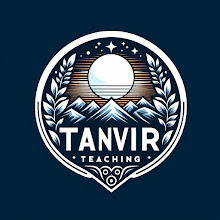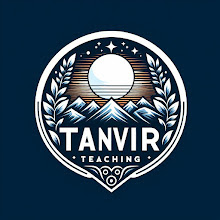Navigating the Educational Frontier: The Impact of ChatGPT on Traditional Learning
Introduction:
In our dynamic and ever-evolving technological landscape, the influence of artificial intelligence (AI) is undeniably reshaping the contours of our daily lives. As we stand at the intersection of innovation and education, the emergence of ChatGPT has sparked a profound transformation in the traditional paradigms of learning. This blog post endeavors to embark on a comprehensive journey, exploring the multifaceted impact of ChatGPT on traditional education. We will delve into the advantages, challenges, and endeavor to foresee the potential future landscape of learning, providing a thorough examination of this revolutionary phenomenon.
Understanding ChatGPT :
Before unraveling the intricacies of its impact on education, it is imperative to delve into the core of ChatGPT. Developed by the renowned OpenAI, ChatGPT stands tall as a state-of-the-art language model powered by artificial intelligence. Its proficiency in natural language understanding and generation positions it as not just a mere tool for communication and information processing, but as a potential catalyst for transformative changes in the educational arena.
Revolutionizing Learning:
1.
Personalized Learning Experience :
The heart of ChatGPT's transformative potential lies in its unparalleled capacity to deliver a personalized learning experience. Unlike traditional educational models that often adopt a one-size-fits-all approach, ChatGPT accommodates individual learning paces and preferences. Students find themselves in an interactive environment where they can engage with the AI, posing questions and receiving immediate, tailored feedback. This transformative capability reshapes the very fabric of conventional education, making it a dynamic and adaptive process.
2.
Accessible Assistance :
A longstanding challenge in traditional education has been the accessibility of timely assistance for every student. ChatGPT emerges as a beacon of solutions by offering scalable support, providing instant clarification on a myriad of subjects. This democratization of access to quality education has the potential to bridge educational gaps and foster inclusivity on a global scale, ensuring that every learner has access to the knowledge and assistance they need.
Challenges and Concerns:
1.
Overreliance on Technology :
While the advantages are clear, a potential pitfall lies in the overreliance on technology in education. Striking a delicate balance between AI assistance and traditional pedagogical methods is paramount. The goal is to leverage the benefits of technology without compromising the development of essential cognitive skills that are traditionally nurtured in a non-digital learning environment.
2.
Loss of Human Element :
Traditional education is deeply rooted in the interpersonal connections forged between students and teachers. The introduction of AI may inadvertently dilute this human element, raising concerns about the potential impact on the development of social and emotional intelligence in learners. Addressing this challenge requires a thoughtful integration of technology while preserving the irreplaceable human touch that defines the essence of education.
ChatGPT and Teacher Empowerment :
1. AI-Assisted Lesson Planning :Beyond its impact on student interaction, ChatGPT has the potential to significantly empower educators in lesson planning. By analyzing extensive datasets, the AI can offer valuable insights into effective teaching strategies, enabling teachers to create more engaging and impactful learning experiences tailored to the diverse needs of their students.
2.
Time Efficiency for Educators :
Educators often grapple with time-consuming tasks such as grading and administrative duties. ChatGPT's automation capabilities come to the rescue, streamlining these processes and allowing teachers to redirect their time and efforts towards more interactive and dynamic teaching methods. This not only enhances the quality of education but also contributes to teacher satisfaction and professional growth.
The Future Landscape:
1. Hybrid Learning Environments :
Envisioning the future of education suggests a harmonious integration of traditional and AI-assisted learning environments. A hybrid approach seeks to retain the unique strengths of traditional education while harnessing the benefits of technological advancements. This synthesis could potentially offer a holistic and adaptive learning experience for students, creating an educational landscape that blends the best of both worlds.
2.
Continuous Adaptation :
The trajectory of ChatGPT's impact on education is dynamic and ever-evolving. Continuous adaptation and integration of feedback are imperative for refining the AI's educational capabilities. This involves addressing emerging challenges, incorporating user experiences, and ensuring that the technology evolves in tandem with the evolving needs of the educational landscape.
Conclusion:
The ChatGPT effect on traditional education is a nuanced interplay of opportunities and challenges. While AI brings unprecedented advantages in personalization and efficiency, it must be implemented judiciously to preserve the core values of education. Striking a delicate balance between the technological prowess of ChatGPT and the irreplaceable human touch in education is pivotal in shaping the future of learning.
As we navigate this transformative period, collaboration between educators, technologists, and policymakers becomes essential to harness the full potential of AI in education. By fostering this collaboration, we can ensure that the integration of ChatGPT into traditional education enhances the learning experience for all, laying the foundation for a dynamic and inclusive educational future. The ongoing dialogue between traditional methodologies and technological advancements is key to sculpting an educational landscape that not only meets the needs of today but is also poised to adapt to the challenges and opportunities of tomorrow.









.jpg)






0 Comments